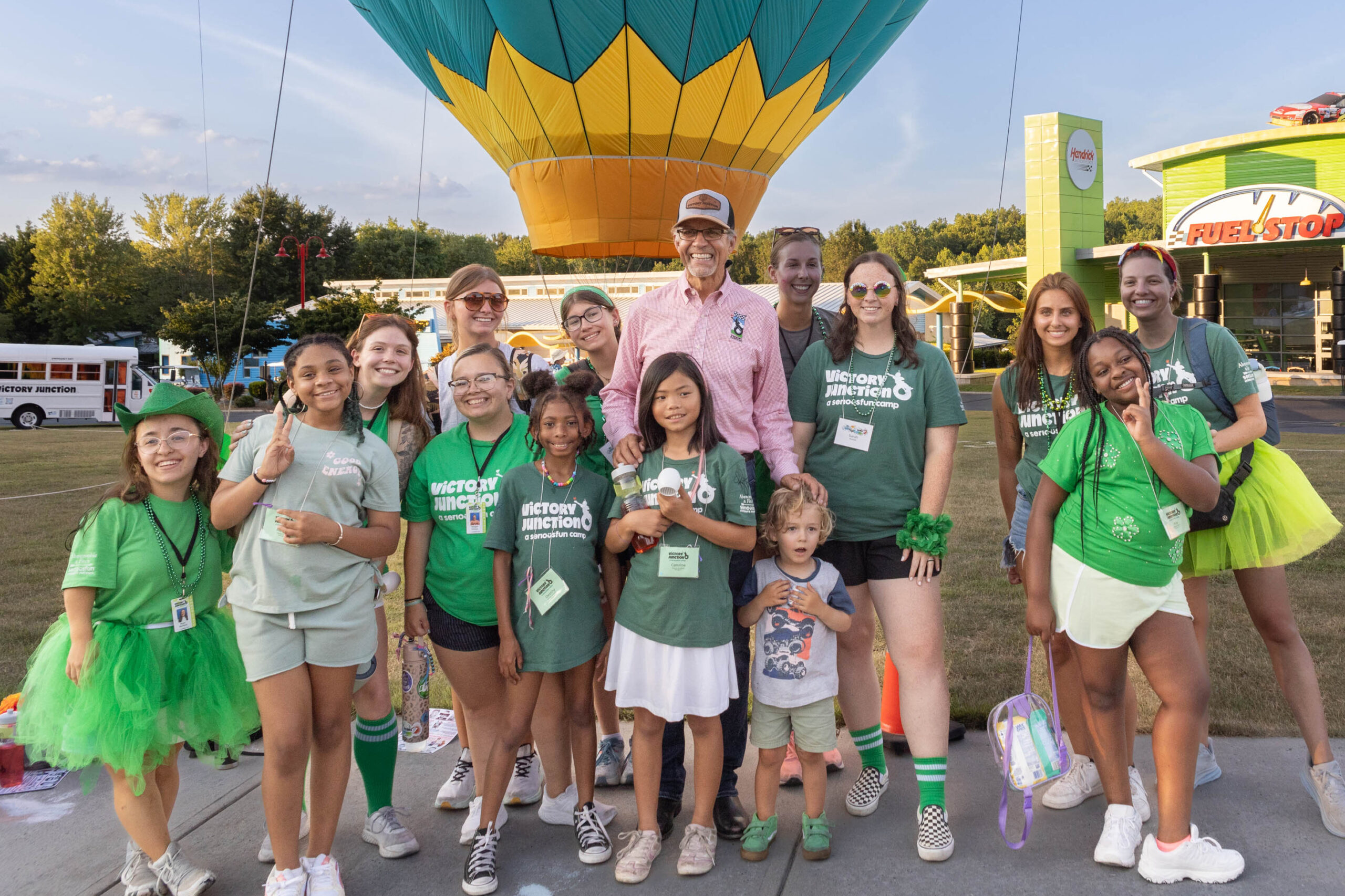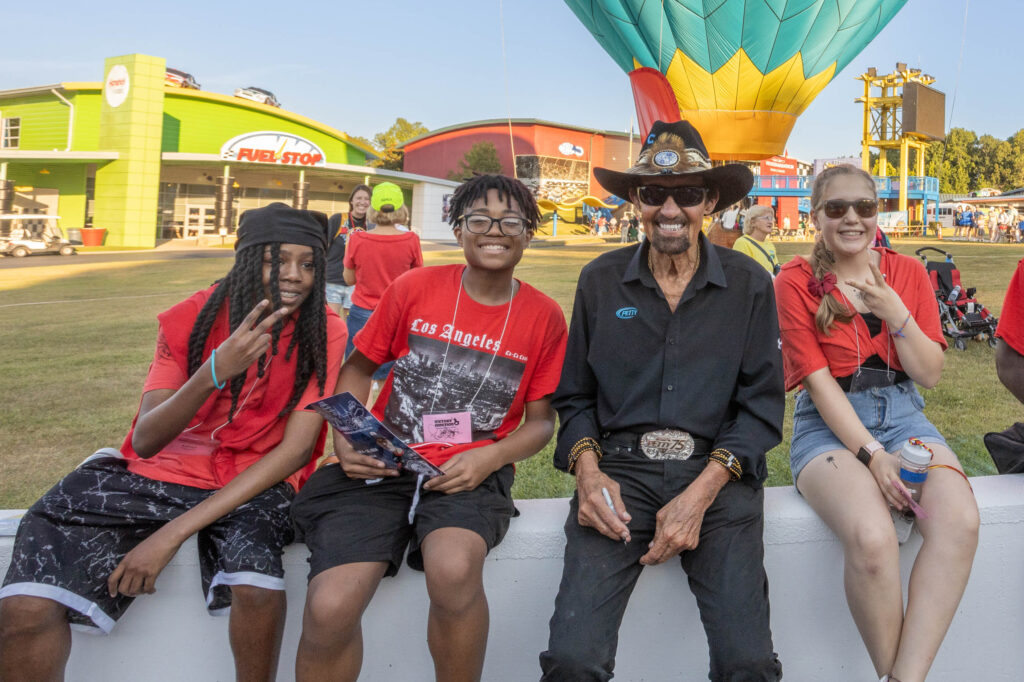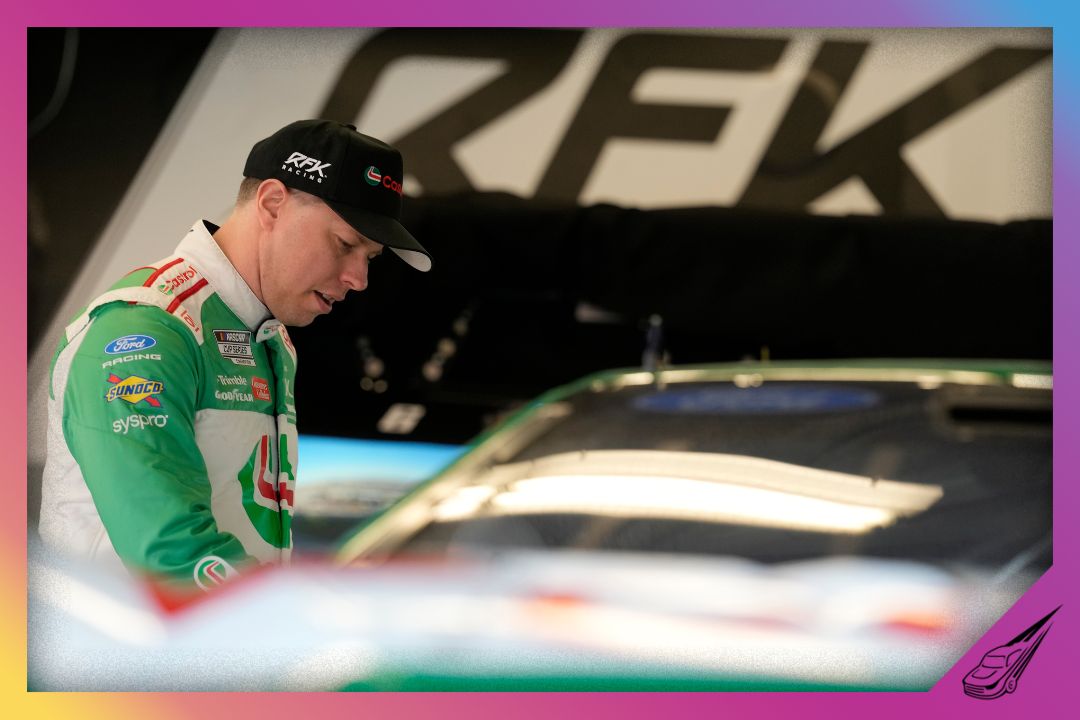
Since its genesis in 2004, Victory Junction – a Randleman, North Carolina-based year-round camp for children with serious illnesses and chronic medical conditions – has delivered more than 136,000 camp experiences while serving kids from all 50 states and several countries.
Synonymous with the Petty name, especially that of legendary co-founders Richard and Kyle Petty, Victory Junction – or a place like it – is the culmination of a vision cast by Richard’s grandson and Kyle’s son, Adam, before he died tragically at the age of 19 in a racing accident at New Hampshire Motor Speedway.
Before Adam’s passing in May 2000, he had drawn inspiration from a visit he made to a Florida-based camp that was enriching the lives of sick children. Wanting to make a similar type of impact back home in North Carolina, Adam shared his idea with family members and close friends.
So, not long after Adam’s death, Richard and Kyle Petty, along with other members of the Petty family, set out to build Victory Junction – a camp established in Adam’s memory, with the goal of reaching and helping as many children as possible.
“When I see the joy and the smiles this camp brings to kids and their families, I can still feel Adam’s giving spirit and see his smile,” said Kyle Petty, a former NASCAR Cup Series driver turned NASCAR broadcaster.
Chad Coltrane, Victory Junction’s CEO since 2015, is motivated daily by a desire to carry out Adam Petty’s wishes in everything that goes on at Victory Junction.
“I didn’t know Adam, and I had never met Adam, but I heard the story about how this idea of camp came about and this idea of all the kids coming to Randleman and being served in one location,” he said. “I hope he would be shocked at how many kids we actually see here on-site now through all the different programs, and that he would be inspired by the numbers of kids that we serve.”
This year alone, Victory Junction has received more than 850 applications for its summer camp experiences, which begin in June and run through early August. Each week of camp is tailored to children with a different medical condition, providing not only a welcome distraction from the daily challenges they face but also making a difference that extends far beyond the four or five days they spend at camp.
“We know through data and research, with Yale University as an example, that the work we’re doing is life-changing,” Coltrane said. “We know the kids leave camp with more self-confidence and more self-esteem and a willingness to try new things. We’ve done a study with kids that now are in their 30s, so now adults, and we know there is a longer-lasting impact of camp than that summer camp experience.
“It’s longer than the summer when they return home or the school year after. We know that it stays with them until at least their 20s and 30s. It’s a strong, strong mission.”

A nonprofit organization that relies on generous donors, Victory Junction is the sole beneficiary of the Kyle Petty Charity Ride Across America – an annual cross-country motorcycle event that’s welcomed more than 9,000 riders and raised more than $22 million since its 1995 inception.
“Our camp footprint is larger than most camps, and it’s because of NASCAR and the Petty name and celebrity but mainly because of the advocacy that the Kyle Petty Charity Ride provides for us across the country at various locations year over year,” Coltrane said.
Kyle and Richard Petty both sit on the Board of Directors for Victory Junction, but their involvement runs much deeper. Not only are they regulars at camp during the summer, often mixing and mingling with the children at a fun-filled camp event dubbed NASCARnival, but Richard Petty recently donated 403 acres to Victory Junction.
The gift includes eight parcels of land next door to what had been the camp’s 140 acres, 84 of which Richard and his late wife, Lynda, donated to help launch Victory Junction. “My family and I are dedicated to leaving a legacy,” said Richard Petty, a seven-time NASCAR Cup Series champion and the Cup Series’ all-time wins leader with 200
victories. “By donating an additional 403 acres, we hope to ensure the camp can continue serving even more children for generations to come.”
Coltrane called the additional land “a huge deal.”
“To be given that land at this point is a game-changer, and we’re being very meticulous and methodical in our planning and preparation of what we’re going to do with it,” he said. “Much like a university would, we want to create kind of a master plan and really just go about this in a slow and methodical and thoughtful way.”

by Bryan Aguiar
A few years ago, I looked at the racetracks preserved on iRacing that no longer exist in real life. After digging deeper, I expected to find one common reason they all shut down. Instead, each one tells a completely different story — from booming cities and land value spikes to ownership changes, broken promises, and even mysteries that still don’t have clear answers.
Some tracks were pushed out by urban development. Some lost the one person fighting to keep them alive. Others faded due to declining support — or were never meant to last forever in the first place. No two closures are the same, and that’s what makes this deep dive so fascinating.
Watch Also:

by Neha Dwivedi
NASCAR’s documentary series “Full Speed,” which used to live on Netflix, had its first two seasons look back at entire playoff runs. But now, NASCAR is shifting the series to Amazon Prime Video for its third season, and the scope of the series will also shift to new storylines.
Your favorite docuseries is back with a new installment and a new home.
— NASCAR (@NASCAR) February 27, 2026
FULL SPEED: The DAYTONA 500, starring @KyleBusch, @NoahGragson, @keselowski and @ConnorZilisch, premieres March 5 on @PrimeVideo!
Dropping on March 5, the new season is aimed at zooming in on one event: the 2026 Daytona 500. Instead of a multi-episode run, this time it’s a single-episode documentary that goes all in on one race.
The film will follow big names and storylines from the Daytona 500. It will spotlight the winner, Tyler Reddick, and lean into driver storylines around the weekend. That includes Kyle Busch trying to get his groove back, Brad Keselowski clawing his way back after a broken leg, Connor Zilisch being pushed as the next big thing, and Noah Gragson bringing chaos wherever he goes.
Some fans might question the move away from Netflix, especially after Season 1 pulled in 3.4 million views in the first half of 2024. Then in 2025, the docuseries clocked 900,000 views after its early May release and added another 200,000 between July and December.
But with Prime Video stepping in as one of NASCAR’s broadcast partners, moving the series lines up with a bigger play to keep content under one roof.
Amazon has already dipped into NASCAR storytelling with projects like the docuseries Earnhardt about Dale Earnhardt. Moving Full Speed to Prime follows the same playbook. And for fans who still haven’t seen previous installments, the first two seasons are also heading over to Prime Video.
However, Reddit fans are divided in their opinions about the decision. Some fans actually get why NASCAR changed the format and platform, while a chunk of fans think leaving Netflix is risky because Netflix is where casual viewers stumble into shows. Others push back, pointing out that Prime actually has a massive reach in the U.S. and strong marketing muscle.
While one fan commented, “Makes sense. I highly doubt they were gonna make a new season around a points format they don’t use anymore,” another stated, “Idk the semantics and numbers and everything behind it so I’m probably talking out of my ass….buttttttt….at what point does nascar take the less money for the exposure. You need to be on Netflix, people watch Netflix. People don’t watch Amazon video as much. Who’s gonna watch this that isn’t a nascar fan already. You have a higher chance of getting people lost on Netflix than lost on Amazon Prime Video.”
One fan commented on the news, saying, “100%. I have Amazon Prime and Netflix. AP is a train wreck for videos especially now with their ad program with videos. I steer clear because Netflix is still ad free.” Another fan supported NASCAR’s move, saying, “Prime actually has slightly more subscribers in the USA and in my opinion is better at marketing. It’s a lateral move.”
Another backed NASCAR, stating, “Most NASCAR fans will find some way to be on prime in the month of June. I think they are counting on people watching it then if they have not already seen it. Similar to the Earnhardt documentary that dropped in June last year.”
Another fan comment implied something less glamorous yet very real, pointing out that the Netflix seasons didn’t see a surge in viewership. The first season did okay, but later numbers dipped: “Netflix didn’t seem to work that well for the 2 playoff seasons.”
Will you be watching on Prime Video? Let us know your opinion on Discord or X. Don’t forget that you can also follow us on Instagram, Facebook, and YouTube.

by Kauy Ostlien
NASCAR driver/owner Brad Keselowski says that he plans to race the entirety of Sunday’s DuraMax Grand Prix at Circuit of the Americas, despite his ongoing recovery from an injury suffered this past offseason.
Results after the last few days of simulator, go karting and X-Rays say—-> https://t.co/TgCP4YOOFt pic.twitter.com/TRcYJtkANo
— Brad Keselowski (@keselowski) February 27, 2026
What do you think about this? Let us know your opinion on Discord or X. Don’t forget that you can also follow us on Instagram, Facebook, and YouTube.